
By Ian Walker. U.K.

By Ian Walker. U.K.
All the following pictures were taken on
a Nikon Coolpix 4500 digicam together with a Zeiss microscope and objectives.
At present I'm still trying different settings and techniques using the
Nikon for microscopy and so some of the following pictures could be better!
*Note that most of
the pictures have been post edited with Photoshop Elements® to improve
contrast and definition. The magnification shown for each image refers
to those seen through the eyepiece not taking into account the final image
size.*
Below are the slides, in order, of the
pictures in the article.

On the left below, H.R.S. Williams: mounted
in 1922, part of his slide showing six selected Coscinodiscus, Actinocyclus
and Stictodiscus diatoms.
On the right is from Watson & Sons
Ltd, one of three nicely arranged Actinocyclus subtilis.
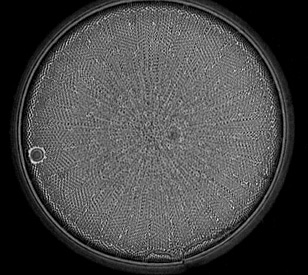
both taken at X630 in black and white using phase contrast.
Unamed mount: mounted in 1965 possibly
by R. Gosden, of Auliscus gigas from Palos Verdes 6A, California.
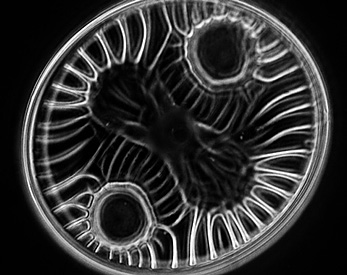
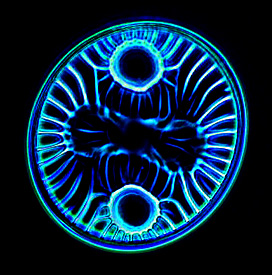
On the left X630 using phase contrast in black and white, on the right X400 phase contrast with blue filter in colour.
A very nice 'classic' slide by Richard
Suter showing various Isthmia nervosa.
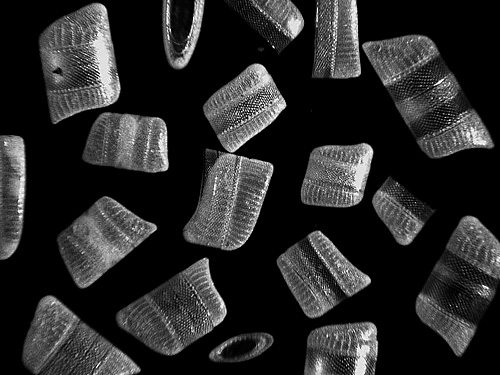
X24 by top lighting, this shot was achieved with a 'MINI MAGLITE'® torch and a very cheap unamed achromatic 4X objective!
A. C. Cole: two beautifully mounted Aulacodiscus
diatoms from Peru, the mount is still incredibly clear and free of defects
after many years. This shot required very little editing due to its clarity,
except for modest enhancement after resizing.
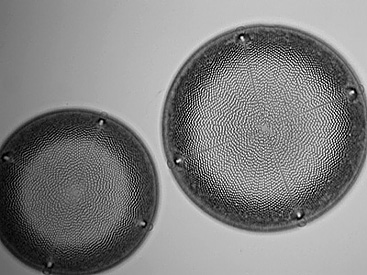
R. Gosden: mounted 1963 in Naphrax of a
Navicula
from Newport Beach, California, U.S.A. This slide looks excellent in bright
field as well.
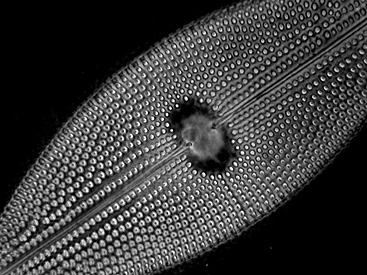
X630 Phase Contrast.
H.R.S. Williams: mounted 1922 in Styrax,
this is part of his slide of five nicely arranged diatoms.
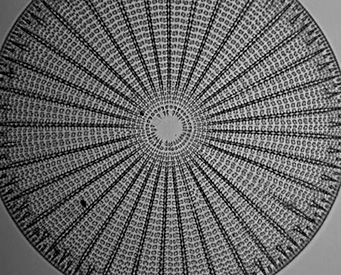
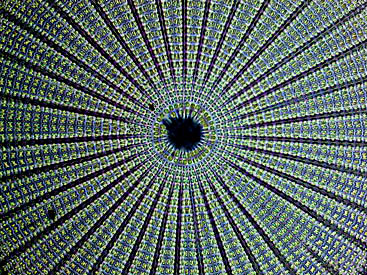
On the left, Arachnoidiscus and on the right the central portion in colour at X250 using phase contrast with a blue filter.
Uknown mounter: mounted in 1922, these photos don't do this slide justice, four beautifully mounted Stictodiscus buryanus from a fossil deposit, Haiti, again looking good after 80 years.
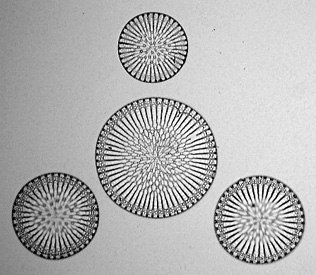
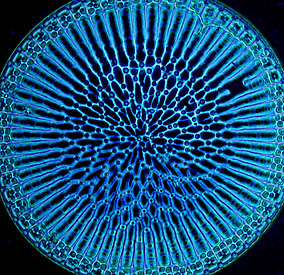
On the left X100 bright field in black and white and on the right, X250 showing the central diatom in phase contrast [at a different focus point] with a blue filter.
Fred Reed: mounted in 1957, this shows
a 'brackish' diatom from Whangamarino, New Zealand, now recognized as an
important wetland site for a large number of rare and endemic plants and
animals.
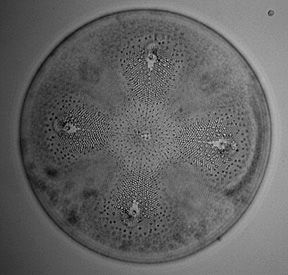
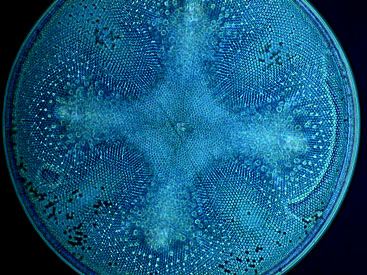
On the left, the Whangamarino diatom in
black and white and on the right at X250 using phase contrast [at a different
focus point] with blue filter.
the end.
All comments to the author Ian Walker are welcomed.
Please report any Web problems or offer general comments to the Micscape Editor.
Micscape is the on-line monthly magazine
of the Microscopy UK web
site at Microscopy-UK.
WIDTH=1